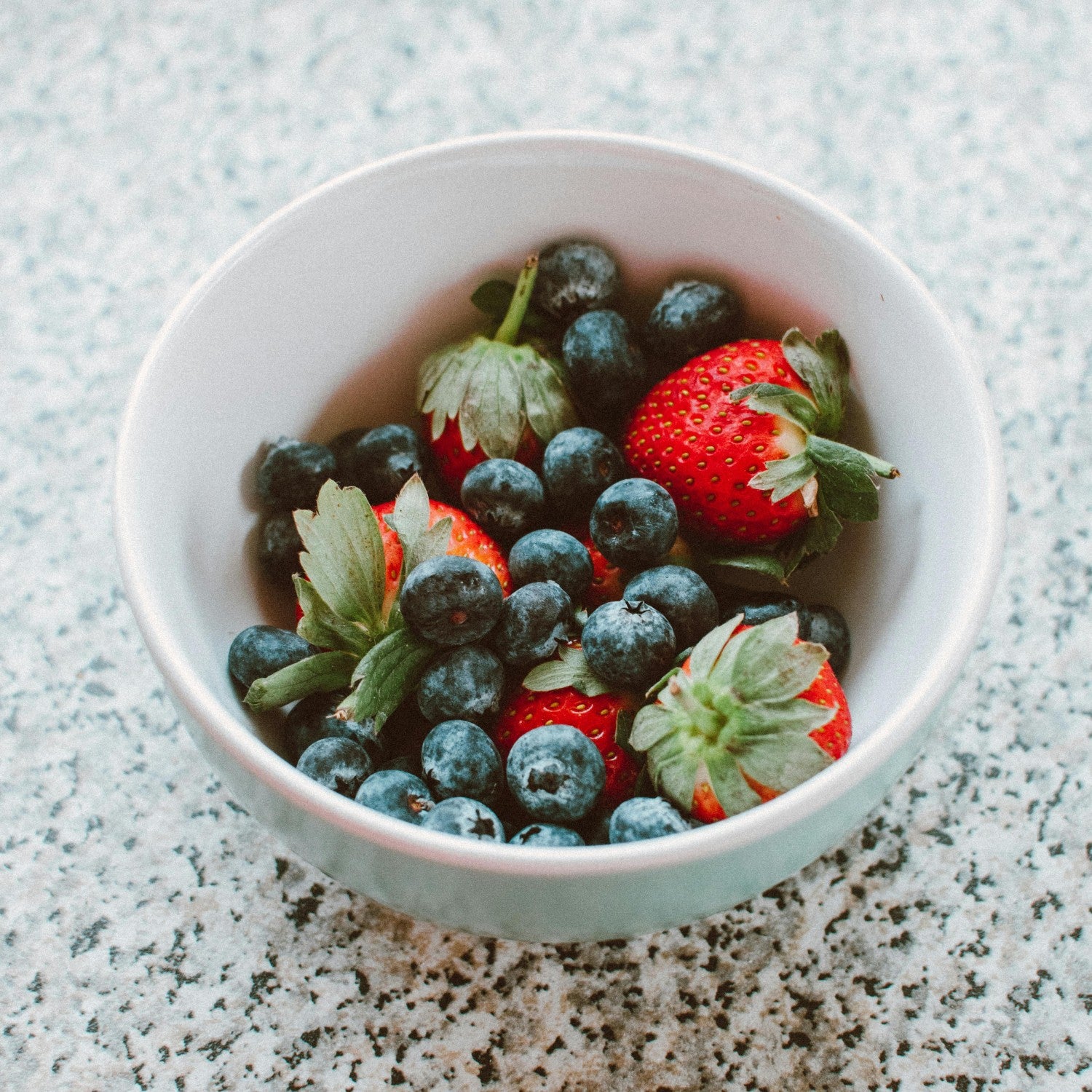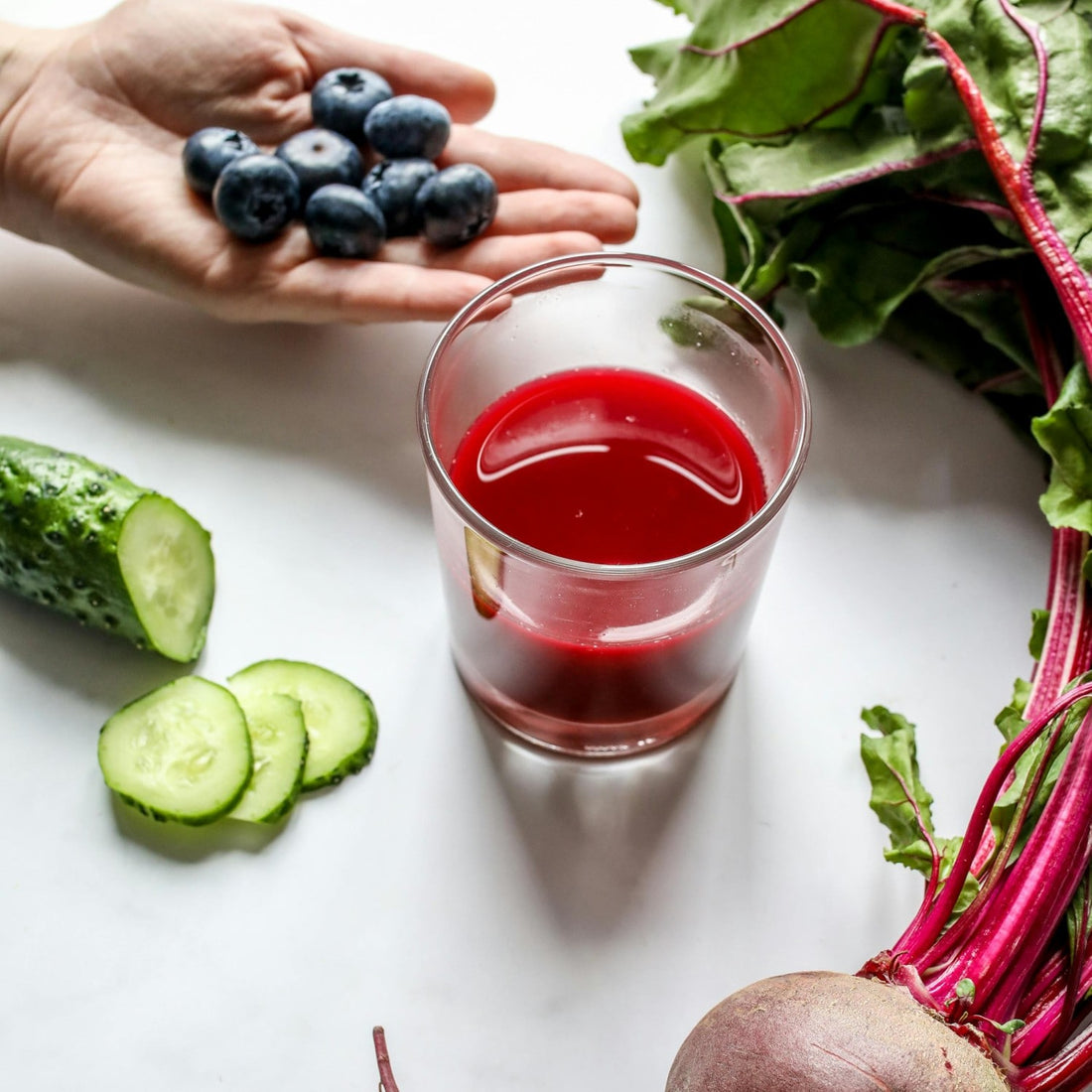Flavonoids, a diverse group of plant compounds, have garnered increasing attention for their potential health benefits. These naturally occurring pigments are found abundantly in fruits and vegetables, contributing not only to the vibrant colors of these foods but also to their nutritional value.
Beyond their visual appeal, flavonoids have been associated with various health-promoting properties, including antioxidant and anti-inflammatory effects.
So, what fruits and vegetables are high in flavonoids? From berries like blueberries, strawberries, and raspberries, to citrus fruits like oranges and lemons, to vegetables like kale, spinach, and broccoli, there is a wide variety of options to choose from.
Understanding which fruits and vegetables are high in flavonoids is crucial for harnessing the nutritional power of these plant-based compounds. By incorporating these flavonoid-rich foods into your diet, you can help support your immune system, promote heart health, and even reduce the risk of chronic diseases.
Why Are Flavonoids Important?
Flavonoids are a diverse group of naturally occurring compounds found in plants. These compounds are known for their antioxidant properties, helping to combat the harmful effects of free radicals in the body.
Flavonoids have been shown to have anti-inflammatory effects, which can be beneficial in reducing the risk of chronic diseases such as heart disease and certain types of cancer. Additionally, flavonoids may play a role in protecting against cardiovascular disease by improving blood vessel function and reducing inflammation.
What Are the Health Benefits of Flavonoids?
Flavonoids offer a wide range of health benefits beyond their antioxidant properties. Different types of flavonoids, such as flavanones, flavones, and flavonols, have unique effects on the body.
What Vitamins and Minerals Are in Green Fruits and Vegetables?
For example, anthocyanins, a type of flavonoid found in berries, are known for their anti-inflammatory and cardiovascular benefits. Isoflavones, another subclass of flavonoids found in soy foods, may help reduce the risk of certain hormone-related cancers. The health effects of flavonoids extend to reducing the risk of developing type 2 diabetes and improving heart health.
Incorporating a variety of flavonoid-rich foods into your diet can provide these potential health benefits and support overall well-being.
Flavonoids serve several important functions in plants and have been associated with various health benefits in humans.
Here are some reasons why flavonoids are considered important:
- Antioxidant Properties: Flavonoids are well-known for their antioxidant properties. They help neutralize harmful free radicals in the body, which can reduce oxidative stress and prevent cellular damage. Antioxidants play a crucial role in maintaining overall health and may contribute to the prevention of chronic diseases such as heart disease and cancer.
- Anti-Inflammatory Effects: Many flavonoids have anti-inflammatory properties, which can help in reducing inflammation in the body. Chronic inflammation is linked to various health problems, including arthritis, cardiovascular diseases, and certain types of cancer. Flavonoids' ability to modulate inflammatory responses contributes to their protective effects.
- Heart Health: Some studies suggest that flavonoids may contribute to cardiovascular health by improving blood vessel function, reducing blood pressure, and lowering the risk of heart disease. Certain flavonoids, such as those found in fruits, vegetables, and tea, have been associated with a lower incidence of cardiovascular events.
- Cancer Prevention: Flavonoids have been investigated for their potential role in preventing certain types of cancer. Their antioxidant and anti-inflammatory properties may help inhibit the growth of cancer cells and reduce the risk of developing certain cancers.
- Immune System Support: Flavonoids can contribute to a healthy immune system by modulating immune responses. They may help regulate the immune system's activity and enhance its ability to defend the body against infections and diseases.
- Neuroprotective Effects: Some flavonoids, particularly those found in berries and certain fruits, have been linked to improved cognitive function and a reduced risk of neurodegenerative diseases such as Alzheimer's and Parkinson's.
- Anti-allergic Properties: Certain flavonoids have demonstrated anti-allergic effects by inhibiting the release of histamines and other allergic mediators. This can be beneficial for individuals with allergies or asthma.
- Anti-diabetic Effects: Some studies suggest that certain flavonoids may help regulate blood sugar levels and improve insulin sensitivity, making them potentially beneficial for individuals with diabetes or those at risk of developing diabetes.
It's important to note that while research indicates potential health benefits of flavonoids, more studies are needed to fully understand their mechanisms and effects.
Including a variety of fruits, vegetables, teas, and other plant-based foods in your diet is a good way to ensure a diverse intake of flavonoids and other beneficial compounds.

What Fruits and Vegetables Are High in Flavonoids?
Among fruits, citrus fruits like oranges, lemons, and grapefruits are particularly rich in flavonoids, especially flavanones. These compounds contribute to the fruits' antioxidant and anti-inflammatory properties, making them beneficial for heart health and disease prevention. Berries, such as blueberries, strawberries, and raspberries, are also high in anthocyanins, another type of flavonoid known for its health-protective effects.
Several vegetables are rich in flavonoids, providing a variety of health benefits. Leafy greens such as spinach, kale, and broccoli are excellent sources of flavonoids, particularly flavones and flavonols. These compounds have anti-inflammatory effects and may help protect against chronic diseases like heart disease and cancer.
Understanding also what fruits and vegetables help with memory can empower individuals to make informed dietary choices for cognitive health.
Which Fruit Has the Most Flavonoids?
The flavonoid content of fruits can vary widely, and different fruits contain different types and amounts of these compounds. However, among commonly consumed fruits, berries are often recognized for their high flavonoid content.
Here are some examples of fruits that are particularly rich in flavonoids:
- Blueberries: Blueberries are known for their high levels of anthocyanins, a type of flavonoid that contributes to their deep blue color. Anthocyanins have been associated with various health benefits, including antioxidant and anti-inflammatory effects.
- Strawberries: Strawberries contain a variety of flavonoids, including anthocyanins, quercetin, and kaempferol. These compounds contribute to the antioxidant and anti-inflammatory properties of strawberries.
- Raspberries: Raspberries are rich in anthocyanins, quercetin, and other flavonoids. They contribute not only to the fruit's color but also to its potential health benefits.
- Apples: Apples contain several flavonoids, with quercetin being a prominent compound. The highest concentration of flavonoids is typically found in the skin of the apple. Quercetin has antioxidant and anti-inflammatory properties.
- Citrus Fruits (Oranges, Grapefruits, Lemons, Limes): Citrus fruits contain various flavonoids, including flavanones such as hesperidin and naringin. These compounds contribute to the health benefits of citrus fruits, including their antioxidant and cardiovascular effects.
- Cherries: Cherries, especially tart cherries, are rich in anthocyanins and other flavonoids. These compounds are believed to contribute to the anti-inflammatory and pain-relieving properties of cherries.
It's important to note that the specific flavonoid content can vary not only among different fruits but also within different varieties of the same fruit. Eating a variety of fruits and vegetables is a good way to ensure a diverse intake of flavonoids and other beneficial compounds for overall health.
What Vegetables Are High in Flavonoids?
Various vegetables are rich in flavonoids, contributing to their potential health benefits. Including a variety of colorful vegetables in your diet can provide a broad spectrum of flavonoids and other phytonutrients, contributing to overall health and well-being.
Here are some vegetables that are particularly high in flavonoids:
- Onions: Onions, especially red and yellow varieties, are rich in flavonoids, particularly quercetin. Quercetin has antioxidant and anti-inflammatory properties and is abundant in the outer layers of onions.
- Broccoli: Broccoli is a cruciferous vegetable that contains various flavonoids, including kaempferol and quercetin. These compounds contribute to the antioxidant and anti-cancer properties associated with broccoli consumption.
- Kale: Kale is a leafy green vegetable that contains quercetin, kaempferol, and other flavonoids. Its high nutrient density and antioxidant content make it a valuable addition to a healthy diet.
- Tomatoes: Tomatoes contain various flavonoids, including quercetin and kaempferol. Additionally, tomatoes are rich in lycopene, a carotenoid with antioxidant properties.
- Spinach: Spinach is a leafy green vegetable that contains flavonoids such as quercetin and kaempferol. It also provides essential nutrients like vitamins A and C, as well as iron and calcium.
- Bell Peppers: Bell peppers, especially the brightly colored varieties like red, yellow, and orange, are good sources of flavonoids, including quercetin and kaempferol. These compounds contribute to the antioxidant and anti-inflammatory properties of bell peppers.
- Citrus Peels (Oranges, Lemons, Limes): The peels of citrus fruits, such as oranges, lemons, and limes, contain flavonoids like hesperidin. While people often consume the juice, incorporating the zest or peel can increase flavonoid intake.
- Carrots: Carrots contain various flavonoids, including quercetin, kaempferol, and anthocyanins. These compounds contribute to the antioxidant and anti-inflammatory properties of carrots.
- Eggplant: Eggplant contains flavonoids such as nasunin, which has antioxidant properties. The skin of eggplant, in particular, is rich in these beneficial compounds.
- Cabbage: Cabbage, another cruciferous vegetable, contains flavonoids like kaempferol. Its consumption has been associated with various health benefits, including anti-inflammatory effects.
Eating a diverse range of vegetables ensures that you receive various types of flavonoids, each with its unique potential health benefits.
How Do Flavonoids Play a Role in Disease Prevention?
The consumption of flavonoid-rich foods has been associated with a reduced risk of developing various chronic diseases, including cardiovascular conditions, type 2 diabetes, and certain types of cancer.
- Flavonoids exert their protective effects through their antioxidant and anti-inflammatory properties, which help combat oxidative stress and inflammation in the body.
- Furthermore, flavonoids have been shown to improve blood vessel function, regulate blood pressure, and support heart health, thus playing a crucial role in preventing cardiovascular diseases.
- These compounds may also help reduce the risk of type 2 diabetes by enhancing insulin sensitivity and promoting glucose metabolism in the body.
Including a variety of flavonoid-rich foods in your diet can provide these protective effects and contribute to overall disease prevention.

Easy Tips for Increasing Flavonoid-rich Fruit and Vegetable Consumption
Increasing your intake of flavonoid-rich fruits and vegetables is a great way to support overall health. Here are some easy tips to help you incorporate more flavonoid-rich foods into your diet:
- Add Berries to Breakfast: Include a handful of berries such as blueberries, strawberries, or raspberries in your morning cereal, yogurt, or oatmeal. Blend berries into smoothies for a quick and tasty breakfast option.
- Snack on Fruits: Keep fresh fruits like apples, oranges, or grapes on hand for convenient and healthy snacks. Pair fruits with nuts or yogurt for a balanced and satisfying snack.
- Incorporate Citrus Zest: Add citrus zest (grated peel) to salads, marinades, or dressings for an extra burst of flavor and flavonoids. Use lemon or lime zest in cooking and baking to enhance the taste of various dishes.
- Choose Colorful Vegetables: Opt for a variety of colorful vegetables such as bell peppers, broccoli, spinach, and tomatoes to ensure a diverse intake of flavonoids. Include a mix of vegetables in salads, stir-fries, or side dishes.
- Snack on Veggies: Keep cut-up vegetables like carrots, cucumbers, and bell peppers ready in the fridge for a quick and easy snack. Pair veggies with hummus or yogurt-based dips for added flavor.
- Try Different Cooking Methods: Experiment with different cooking methods like steaming, roasting, or sautéing to enhance the taste and texture of vegetables. Roasting vegetables with a drizzle of olive oil can bring out their natural flavors.
- Include Leafy Greens: Add leafy greens such as spinach, kale, or Swiss chard to soups, stews, or casseroles. Make a nutrient-packed salad with a mix of colorful greens and other vegetables.
- Enjoy Tea: Include tea in your daily routine, such as green tea or black tea, which are rich in flavonoids. Herbal teas like chamomile and peppermint also offer various health benefits.
- Top Yogurt with Fruits: Mix fresh or dried fruits into yogurt for a tasty and nutritious snack or dessert. Try a parfait by layering yogurt with berries and granola.
- Experiment with Herbs and Spices: Use herbs and spices like parsley, thyme, oregano, and cinnamon to add flavor to your dishes while benefiting from their flavonoid content. Try incorporating fresh herbs into salads, soups, or main dishes.
Including a variety of fruits and vegetables in your daily diet ensures a diverse intake of flavanols, a specific type of dietary flavonoid, known for their potential health-promoting properties.
Remember, the key is to create a balanced and varied diet by incorporating a rainbow of fruits and vegetables into your meals. Gradual changes and small additions can make it easier to adopt healthier eating habits over time. Consider incorporating fruit and vegetable supplements into your routine for natural detoxification.

